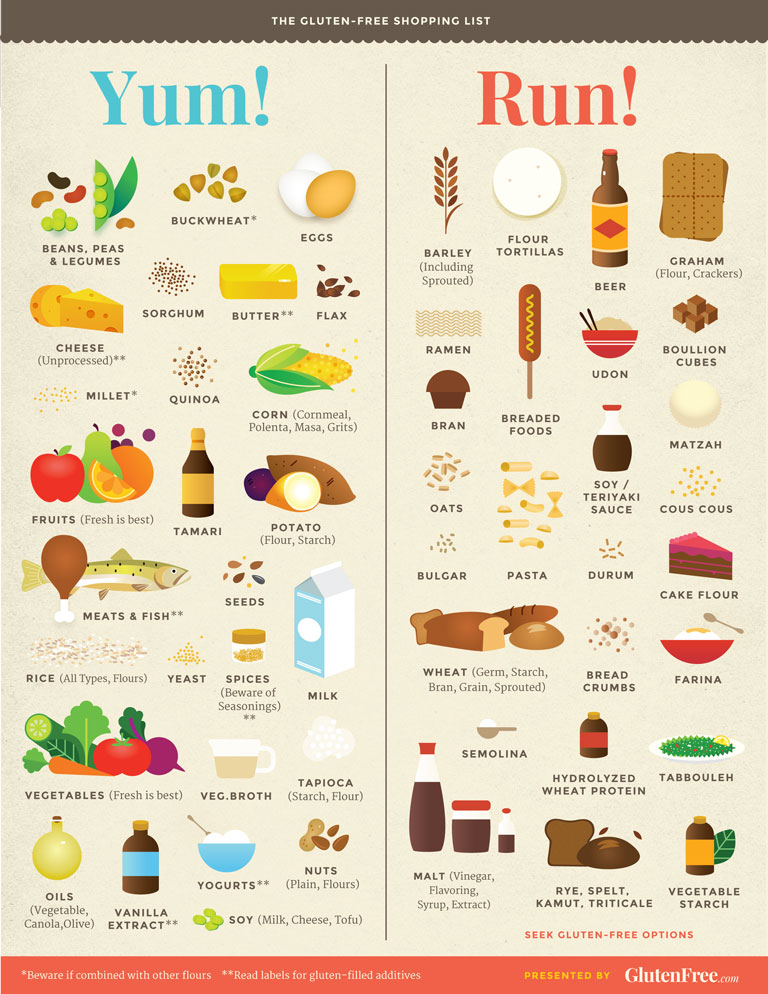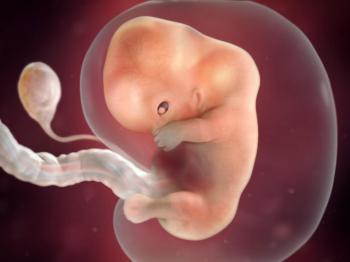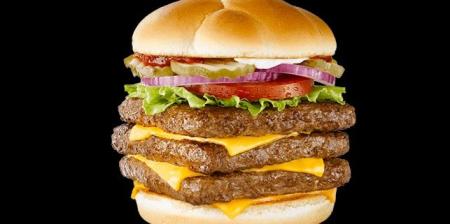Users Who Spiked

GLUTEN FREE
Private Notes
Private Notes
Notes
Gluten Free Diet
The gluten free diet has been trending. Let's talk about if adopting this diet for yourself would be worth it or a waste of time. So what exactly is gluten?
According to:https://celiac.org/gluten-free-living/what-is-gluten/
Gluten is a general name for the proteins found in wheat (wheatberries, durum, emmer, semolina, spelt, farina, farro, graham, KAMUT® khorasan wheat and einkorn), rye, barley and triticale – a cross between wheat and rye. Gluten helps foods maintain their shape, acting as a glue that holds food together. Gluten can be found in many types of foods, even ones that would not be expected.
So gluten is a protein and is used in products as a binding agent. Going on a gluten free diet would be one of being selective in food choices, especially processed food. The difference who would need to go on this diet would vary, along with how careful people are when it comes to what they consume. There are people who have celiac disease, people who are gluten intolerant, and those who heard it would help them to lose weight.
https://celiac.org/about-celiac-disease/what-is-celiac-disease/
"Celiac disease is a serious autoimmune disease that occurs in genetically predisposed people where the ingestion of gluten leads to damage in the small intestine. It is estimated to affect 1 in 100 people worldwide. Two and one-half million Americans are undiagnosed and are at risk for long-term health complications.
When people with celiac disease eat gluten (a protein found in wheat, rye and barley), their body mounts an immune response that attacks the small intestine. These attacks lead to damage on the villi, small fingerlike projections that line the small intestine, that promote nutrient absorption. When the villi get damaged, nutrients cannot be absorbed properly into the body.
Celiac disease is hereditary, meaning that it runs in families. People with a first-degree relative with celiac disease (parent, child, sibling) have a 1 in 10 risk of developing celiac disease.
Celiac disease can develop at any age after people start eating foods or medicines that contain gluten. Left untreated, celiac disease can lead to additional serious health problems."
This is a disease that is very serious and cannot be ignored. The most difficult thing about this disease is that people with it can be affected by just eating a crumb accidentally. Since this is the case, they are only able to eat processed foods that were made in a factory that did not also process gluten. Gluten particles could somehow contaminate the gluten free food and get people sick. The most recent case of this happening was Cheerios. They claimed that they were gluten free but where made in a factory that also processed gluten, which made people sick.
People with this disease have to also be aware of where they eat, for the reason that was stated previously. The important thing is that if restaurants have a gluten free item on the menu, the staff has to be trained in handling the food. They could be handling bread and then handle the gluten free food or use a knife to cut bread and then use it again for the gluten free dish, thereby contaminating it. I read that people who have celiac who are eating somewhere other than their on home have the same amount of anxiety as someone who is diagnosed with stage four cancer.
The second type of person to adapt this diet would be someone who is gluten intolerant. This means that they are sensitive to gluten but they do not have as severe as a reaction than that of someone with celiac.
https://www.webmd.com/digestive-disorders/celiac-disease/features/gluten-intolerance-against-grain#1
"Unlike celiac disease, gluten sensitivity doesn't damage the intestine. There's no accepted medical test for gluten sensitivity, so you should tell your doctor about your symptoms.
"We have to believe the patient when they tell us that they actually have experienced side effects when they eat gluten," Guandalini says.
People with gluten sensitivity may have symptoms as severe as those of celiac disease, says Melinda Dennis, RD, co-author of Real Life with Celiac Disease and nutrition coordinator of the Celiac Center at Beth Israel Deaconess Medical Center in Boston.
Besides gastrointestinal symptoms, gluten-sensitive people often have fatigue and headaches, says Dennis, who has celiac disease."
People with an intolerance have an allotted amount that they are able to digest but it is different for each person.
How to know the difference according to
https://glutenintoleranceschool.com/gluten-intolerance-symptoms/
"Wheat allergy symptoms create the second category. The triggers of wheat allergy symptoms are fundamentally different from the triggers of celiac disease symptoms, but some might inaccurately refer to them as gluten allergy symptoms. A wheat allergy is a histamine response to wheat, much like a peanut allergy or hay fever. Wheat allergies manifest themselves in many ways, which can be quite different for different people. Some people experience hives while others might experience stomach pain. A wheat allergy, unlike celiac disease, is considered a Type 1 Hypersensitivity. It is important to make this distinction: celiac disease is not a Type 1 Hypersensitivity and celiac patients consuming gluten may not experience immediate pain or discomfort. Someone with a wheat allergy, however, will experience problems soon after they eat wheat.
A wheat allergy may also sometimes occur as a cross-reactive condition related to an Oral Allergy Syndrome (OAS), which some people refer to as Pollen Foods Allergy Syndrome. This can also cause stomach pain that might be interpreted as gluten intolerance. For more on that matter, try my recently added lesson: Oral Allergy Syndrome.
Non-Celiac Gluten Sensitivity (NCGS) is currently a little more difficult to pinpoint. Basically, individuals who suffer from NCGS suffer similarly to people with celiac disease, but the blood test and biopsy used to identify and diagnose celiac disease is negative. Non-Celiac Gluten Sensitive patients also test negative for a wheat allergy. The only way to confidently diagnose NCGS is through deduction (a patient tests negative for celiac disease and a wheat allergy) and through a gluten challenge, where this pesky protein composite is removed from the diet for a period, then slowly re-introduced while changes in health and symptoms are observed."
The last type of person that would go on a gluten free diet is someone who wants to lose weight. My thought is that, of course you will lose weight, you are eating less junk. Less pasta, cake, and cookies. Don't waste your money on the expensive, certified gluten free items if they are not a necessity. Just eat the junk sparingly.
Comments
Please login to post comments on this story
-
The graphic for this is dope,so informative and easy to understand.
-
So gluten is a protein and is used in products as a binding agent.
Exactly, sometimes it's really hard to make certain recipes without gluten because of this. -
Thanks for explaining celiac disease, I never quite understood it. I didn't know that even a small crumb could cause severe reactions. Celiac disease reminds me of allergy's. My cousin has a allergy to peanuts, and if she even smells it, she can have a severe reaction, she's been about hospitalized for having a crumb of it. I would be somewhere in the gluten intolerance, but I believe just like lactose intolerance there are levels. I've had Kamut and if I don't cook it all the way, my stomach starts hurting. It feels a bit inflamed, which can also be attributed to my gastritis. But lately I've cooked it longer and had it with mac and cheese, and had absolutely no problems.
-
Thank you for writing this. In an age with so many trendy diets, it is important to remember that many people require dietary adjustments to be able to live. There is a lot of misinformation out there about gluten, especially from the people who choose to be gluten-free for reasons unrelated to Celiac's or an intolerance. I don't fault people for choosing what they want to eat, but I do when they do so while spreading misinformation. Thank you for writing this very informative and well-researched article as a way to combat the misinformation and to raise awareness of Celiac's disease and gluten intolerance.
-
Nice informative post. So many people don't know about celiac disease and give my friends crap for needing gluten free options.
-
I actually have non-celiac gluten sensitivity. I didn't realize there was a difference between celiac disease and a wheat allergy. Very informative piece!

























